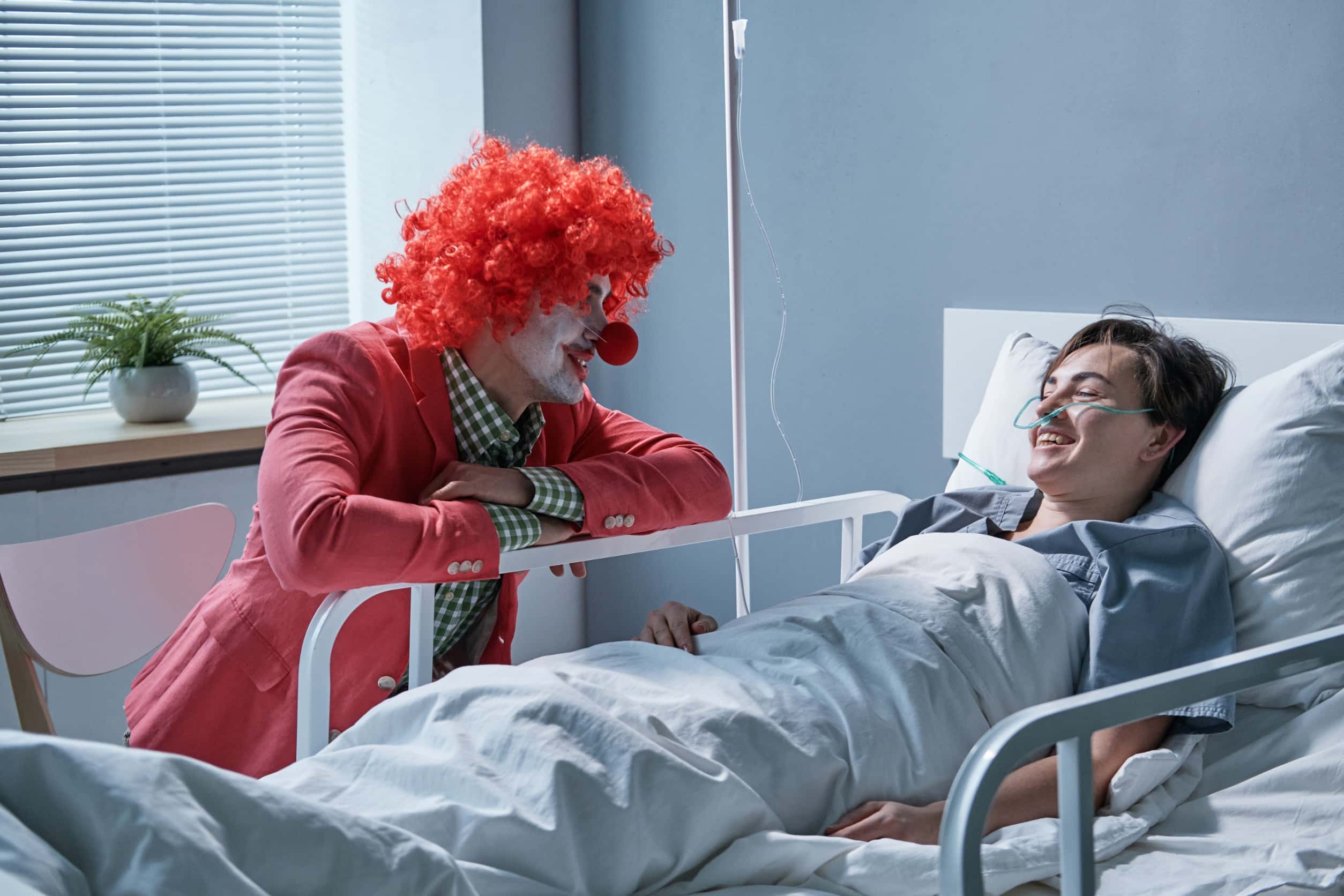By John Salak –
Not everyone can handle clowns. Maybe it’s all those creepy clown movies. You know, Killer Klowns From Outer Space,100 Tears, Clown and, of course, IT (parts 1 and 2). People like John Wayne Gacy Jr. didn’t help the image of clowns either, as this serial killer dressed up like one to entertain children when he wasn’t murdering people. Then again, clowns can simply be off-putting all by themselves with their garish dress, weird expressions and heavy makeup.
Whatever the reason, a whopping 42 percent of Americans report they are afraid of clowns in some way—and this includes harmless, friendly clowns that are just trying to make people laugh.
And in case anyone is wondering, the scientific name for this phobia is coulrophobia. Admittedly, it’s real and discomforting. But maybe people need to lay off these bozos.
Tel Aviv University, in fact, is racing to the defense of medical clowns or therapeutic clowns via a new study that identified 40 different ways that clowning helps patients and caregivers deal with treatments and better weather difficult periods.
On a grand scale, the university reports these clowns give pediatric patients and families a voice and improve connections with caregivers, while also acting as intermediaries for doctors and encouraging patients to adhere to treatment plans.
“From the moment they enter the room, the clowns form a bond with the patients, strengthen them and give them power and status within the medical system,” said Prof. Karnieli-Miller of the university’s department of medical education. “They do this through an initial connection to the patient’s voice, and even to the patient’s reluctance to implement therapeutic recommendations—an emotional connection that often results in the patient changing their position and cooperating with the medical staff.”
The Israeli study was no joking matter. The clowns involved in the research project were part of the Dream Doctors Project, a nonprofit program that integrates professional medical clowns into healthcare settings in Israel. The participants were observed in action, analyzed on video and interviewed in a systematic approach.
Among the 40 identified patient/caregiver benefits that include enhancing patient/doctor communication, clowns distract patients from pain and stress by creating a playful environment. They also work closely with other therapists to navigate moments of contention to keep treatment at the forefront.













